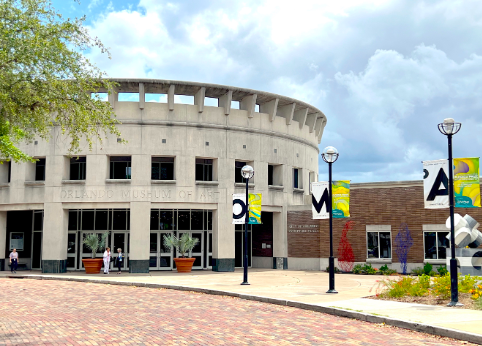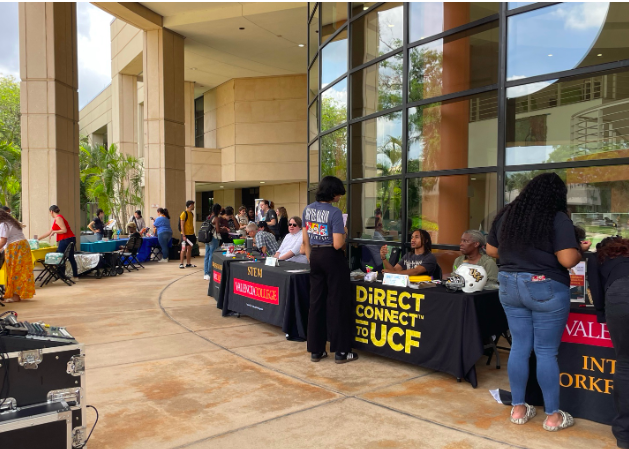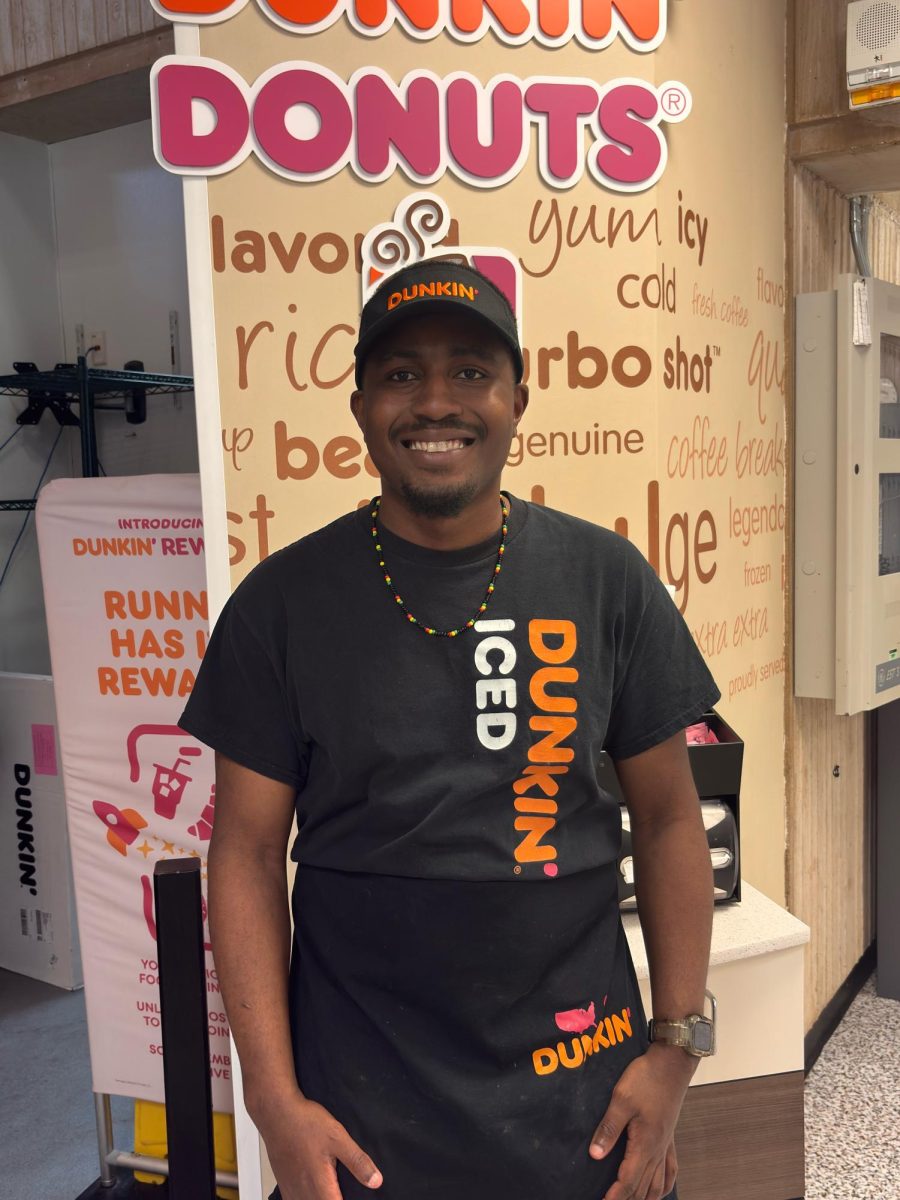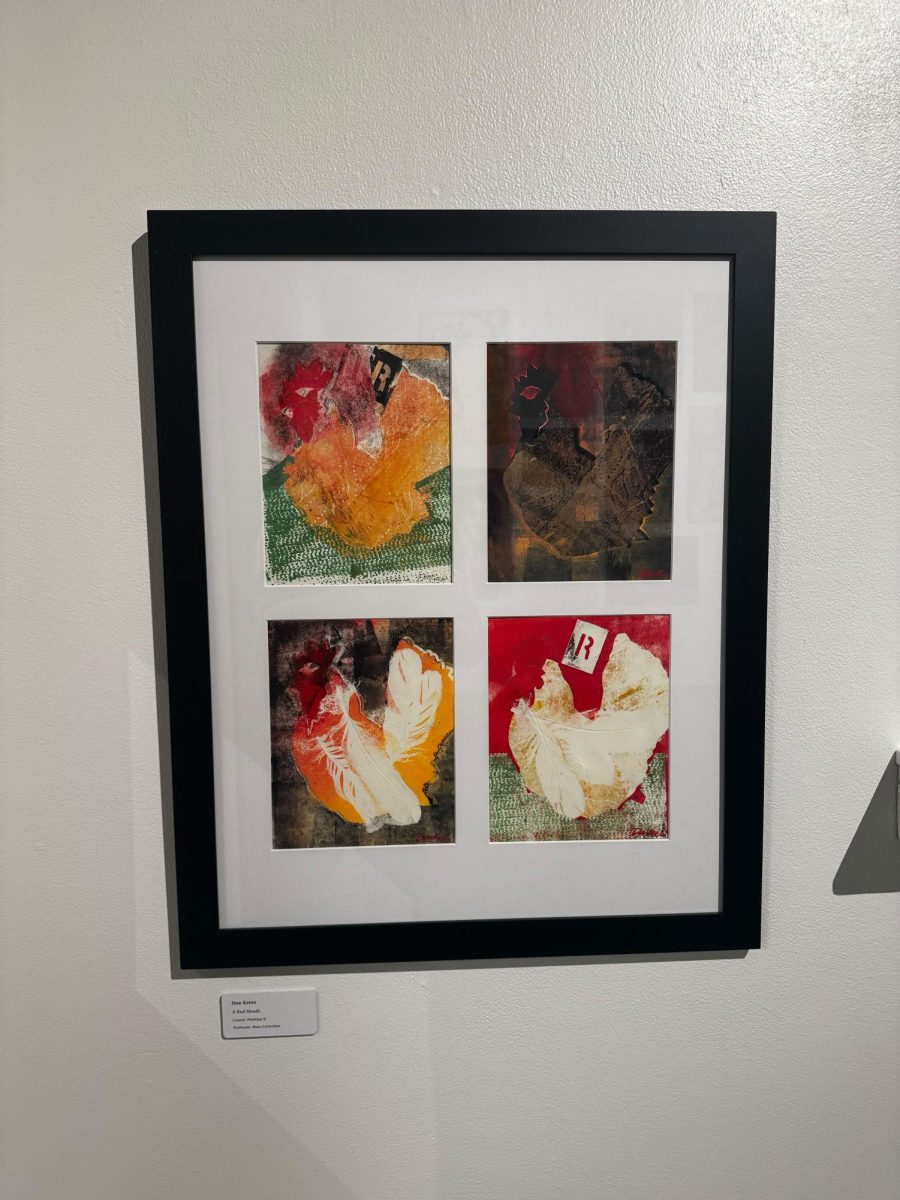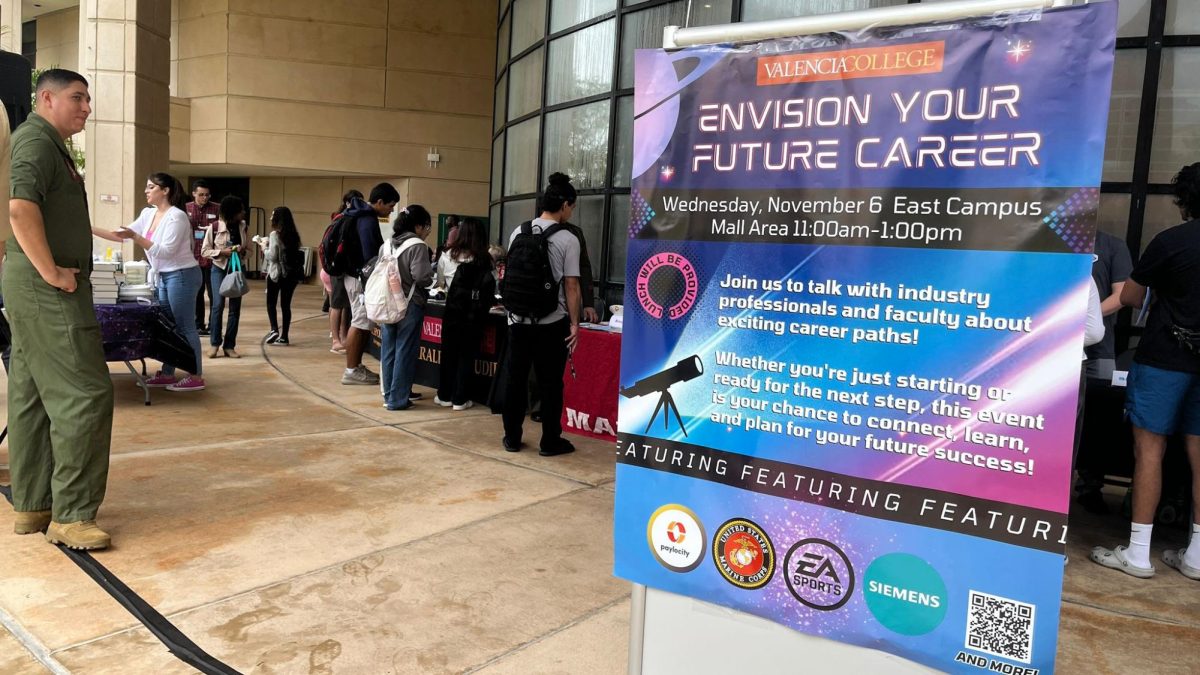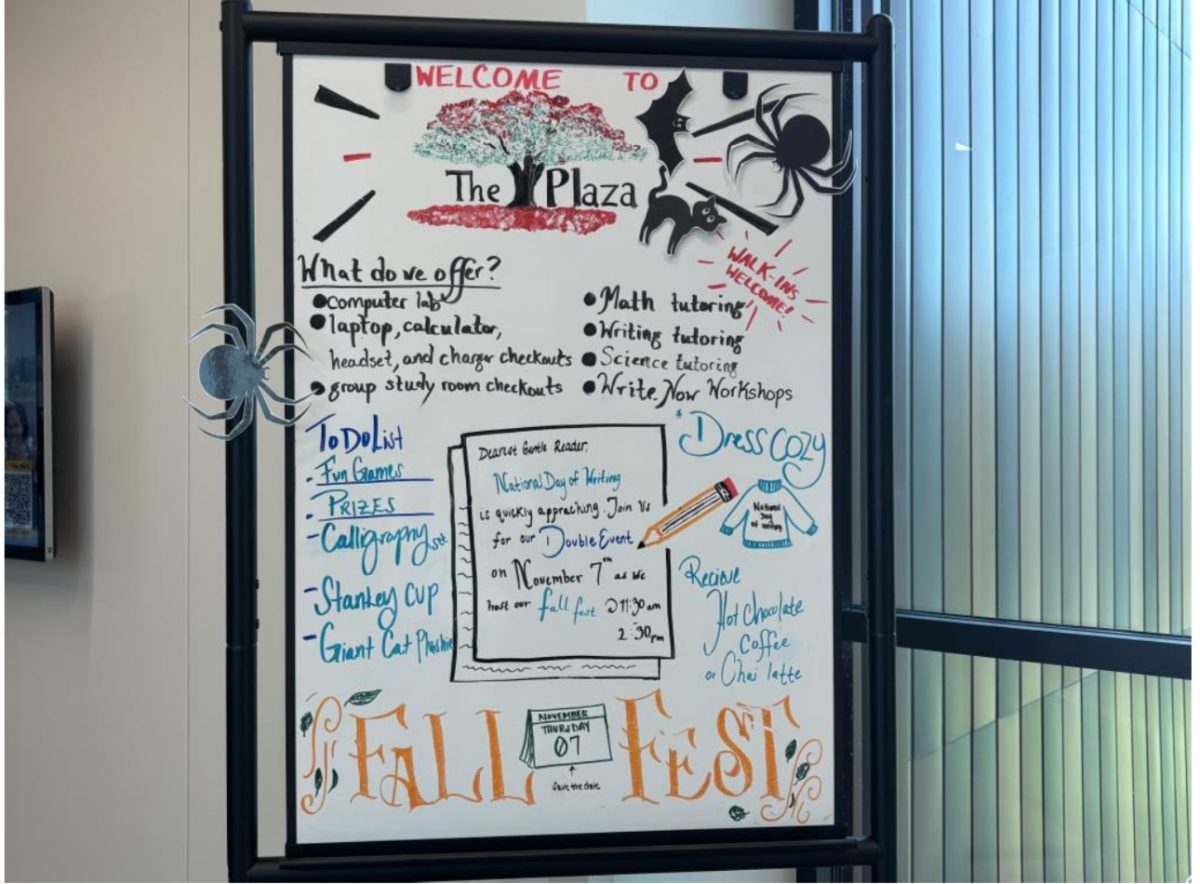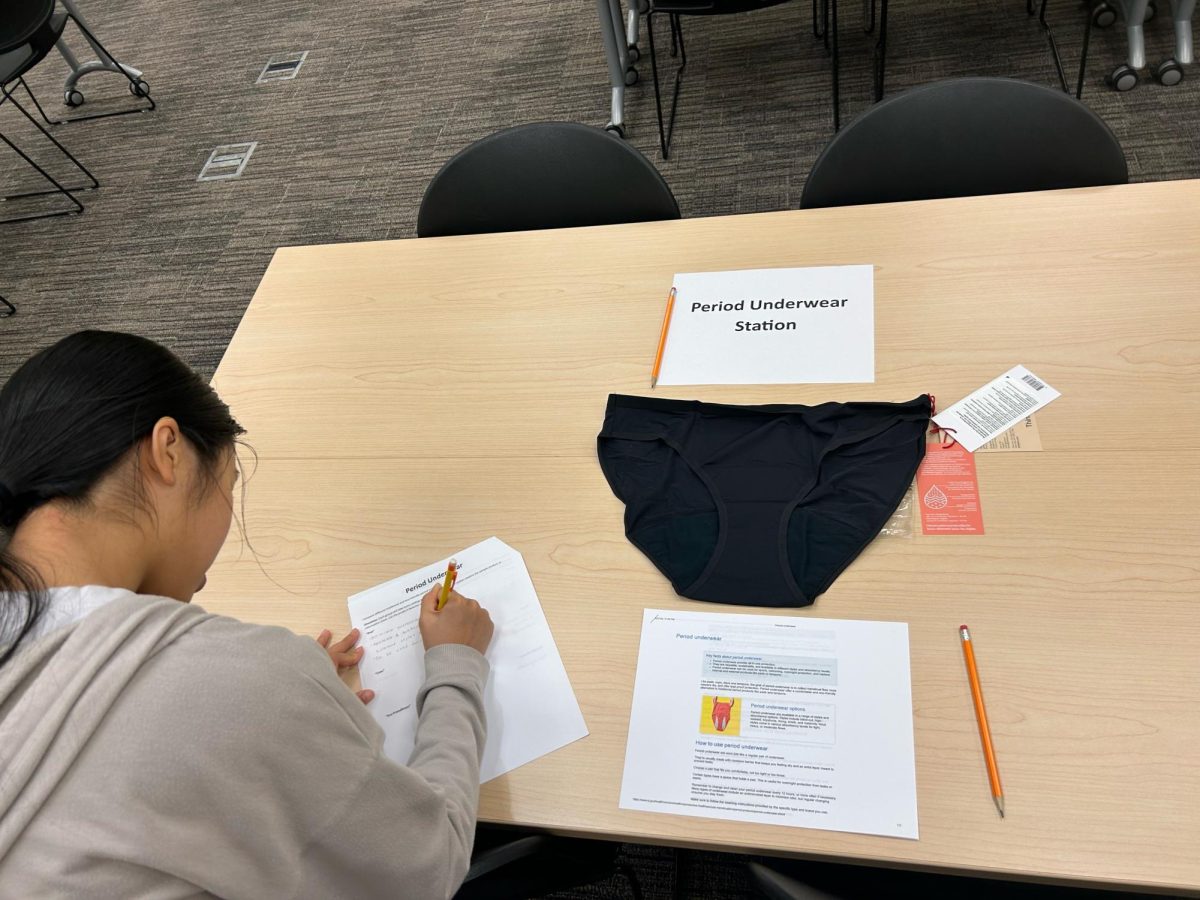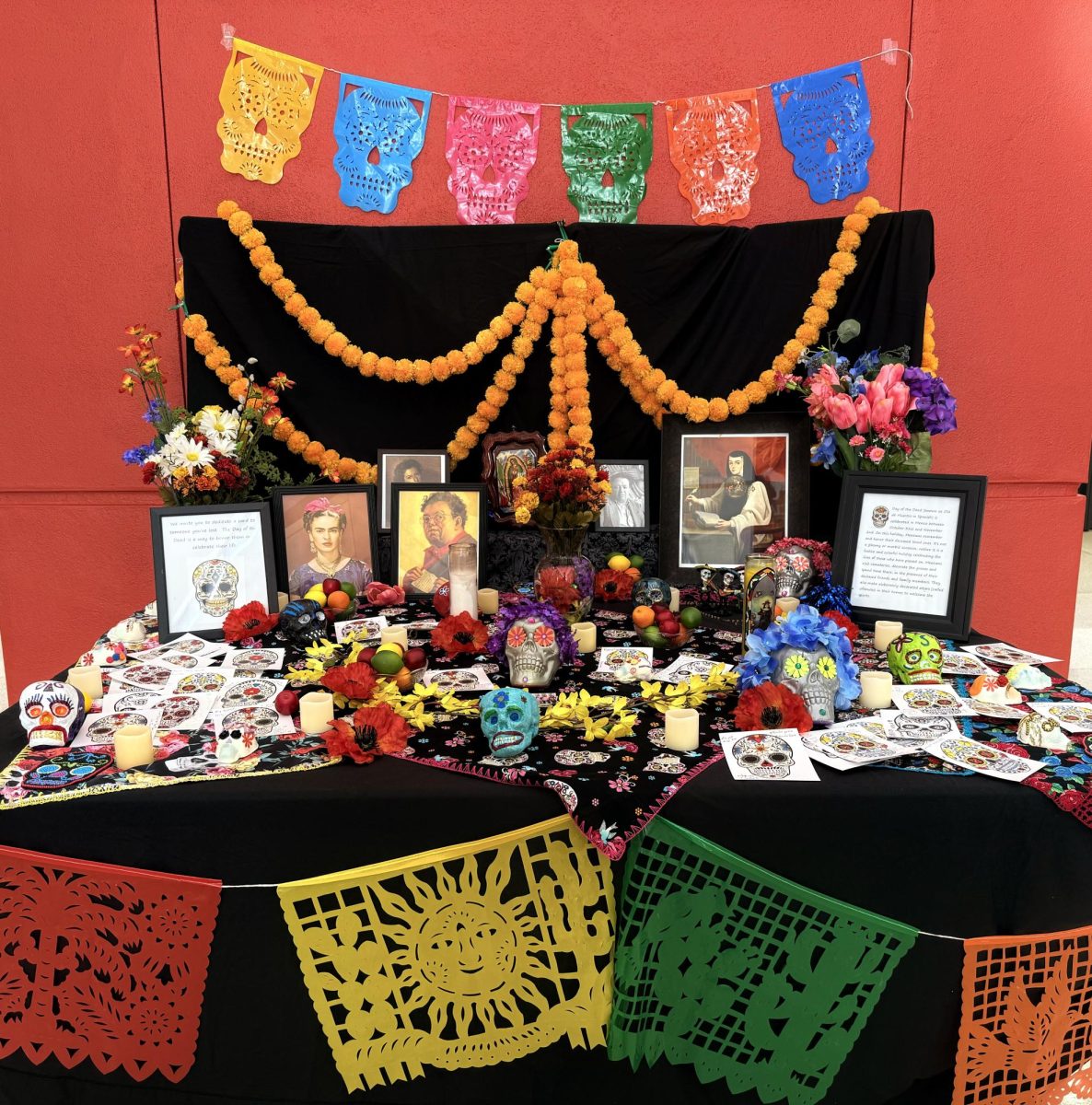Hundreds of students stood in line for hours for the chance to snag an autograph and maybe a picture, but not with a movie star or reality show contestant — with a scientist.
Dr. Michio Kaku, the theoretical physicist famed as much for his appearances on BBC, PBS, and the Discovery Channel as for his work with colleagues such as cosmologist Stephen Hawking, spoke Wednesday at the East Campus of Valencia College.
Every seat in the auditorium was filled when Kaku took the stage to speak about how science and technology are revolutionizing medicine, economics, and even dating. The large crowd laughed as Kaku joked about Madonna, internet porn and smart toilets of the future, which will be able to detect cancer 20 years before tumors form. When the presentation ended, students rushed to form a line that stretched out and around two buildings, all for the chance to have Kaku sign a book and pose for a picture.
“He’s a brilliant physicist and it’s surreal to see him on television and, all of a sudden, he’s at my school,” said Karen Solla, a theatre major, who stood in line for an hour to see Kaku. “The video that he showed about the future in regards to medicine was so cool. I’m hoping that those methods will be here in my lifetime so we can get less invasive treatment.”
Zachary Blumer, a high school student from Timber Creek, skipped school for the day to hear Kaku speak. “Technology has changed so many things,” Blumer said. “We have to think outside the box now to prepare for a future.”
Blumer, 16, hopes to be a physics major in college. He thought he could learn more from hearing Kaku speak for an hour than spending a whole day in class. His mother, who brought him to the event, agreed.
“As a mom, my kids are going to be going into physics,” Theresa Blumer said. “It’s exciting to think that he has such potential to impact the world.”
Kaku is known for his work as the co-founder of string theory and other work in quantum and theoretical physics, subjects too complex for much of the general public to comprehend. His latest work, however, was to interview over 300 of the world’s top scientists for his book, “Physics of the Future.”
The men and women that Kaku interviewed are researching topics that have implications in daily life, from wired contacts that let you go online with the blink of an eye, to replacement organs grown from your body’s own tissue in a matter of weeks. These innovations, and others, are being used to improve all aspects of life.
Evidence that technology is improving life is evident by looking at the spread of democracy via the growth of the Internet and social media, Kaku explained.
“No two democracies have ever warred in history,” Kaku said. “As the Internet spreads democracy, it reduces the fires of war.”
“Many of the world’s ills are created by inequality,” Kaku said. “In 100 years time, we may finally see a planetary society without war because democracy is everywhere and we will be in an era of plenty.”




